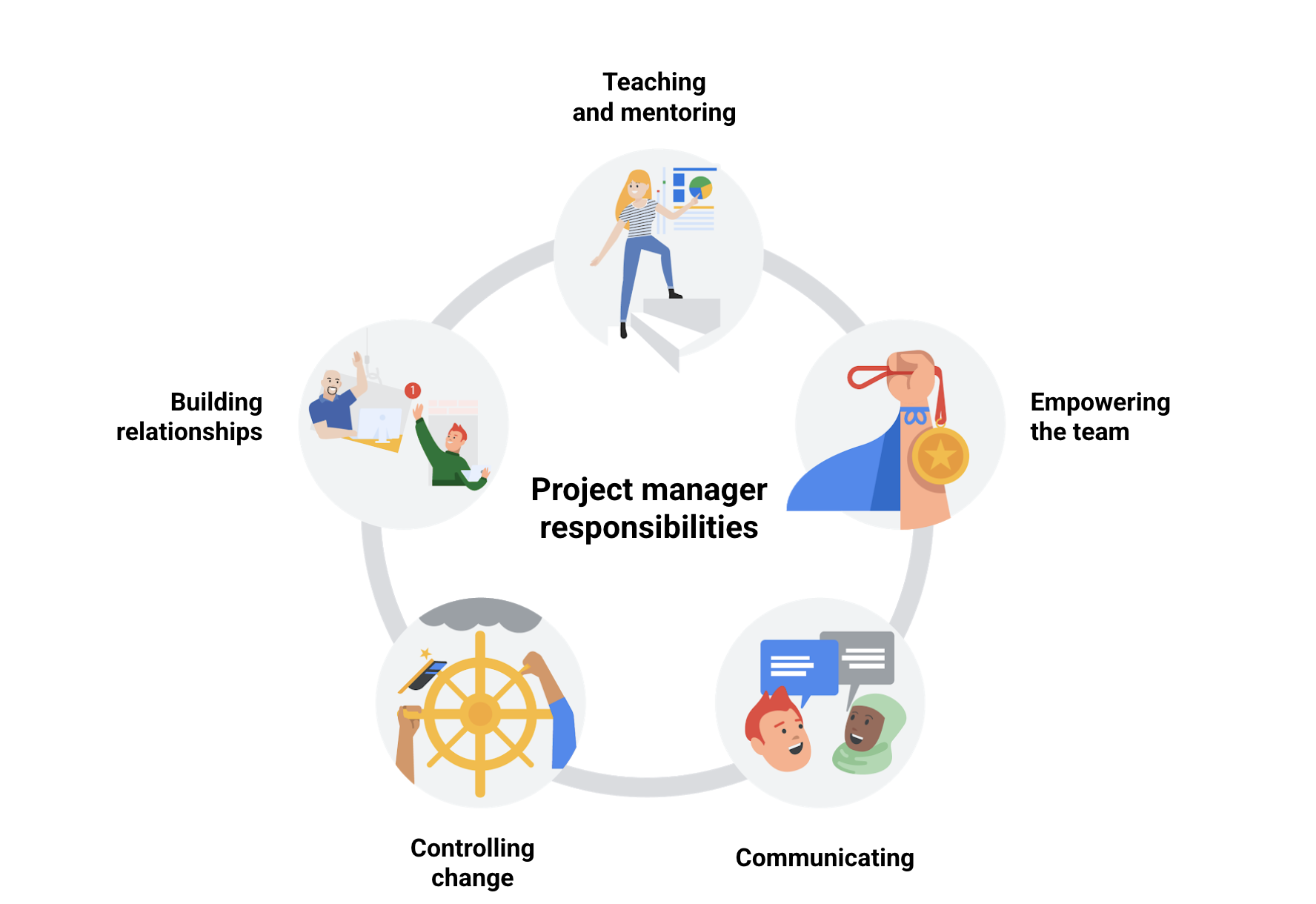Week2 - Becoming a successful project manager
Responsibility
The project manager is responsible for planning, organizing, managing tasks, budgeting, controlling costs, and other factors to help keep the project within budget and on time.
Project managers may be responsible for teaching and mentoring project team members, building relationships with the team and various stakeholders, controlling change and the impact to the project, empowering team members to make decisions, and communicating status and potential concerns. These interpersonal responsibilities can be just as important to the success of your projects as your more concrete responsibilities, like scheduling and budgeting.

Skills
Key competencies: Flexibility and handling ambiguity
Key competencies: Flexibility and handling ambiguity
As a project manager, having the flexibility and ability to handle ambiguity in a rapidly-changing business setting gives you an advantage. Mastering these competencies, along with enabling decision-making, effective communication skills, and strong organizational skills, will allow you to innovate and grow as a project manager and leader.
Interpersonal skills
Communication, negotiation, conflict mediation, and understanding motivations.
Enabling decision making: The ability to enable decision making on the team, or gather decisions from the appropriate leader is crucial to keep projects on task and achieve their goals. As a project manager, you will need to enable decisions frequently.
Communicating and escalating: As a project manager, you'll use your communication skills in just about everything you do. And you need to know when it is appropriate to escalate, so that critical issues are raised and addressed as soon as possible to reduce negative impact on a project.
Remaining flexible: As a project manager, knowing how to be flexible when changes are needed is key. Plans will change — even with careful, upfront planning. As a project manager being flexible is critical to be able to course correct and adapt when the unexpected happens.
Organizational Skills: Having strong organizational skills means having the ability to organize the core elements of a project and ensure nothing gets lost or overlooked. A project manager needs to be organized so that they can manage a project and all of its moving parts.
Negotiation: As a project manager, you'll have to know how to balance the needs of your teammates with the needs of the project. For example, if a teammate says they can't complete their work on time, you may need to compromise on a deadline.
Conflict mediation: Resolving tension and conflict within a team is an important skill. This may involve setting up a meeting with two teammates that are struggling to agree upon the best way to handle a shared task.
Understanding motivations: Getting to know your teammates and figuring out what pushes them to their best work is an effective skill to have. Understanding motivations also involves understanding how your teammates prefer to receive feedback.